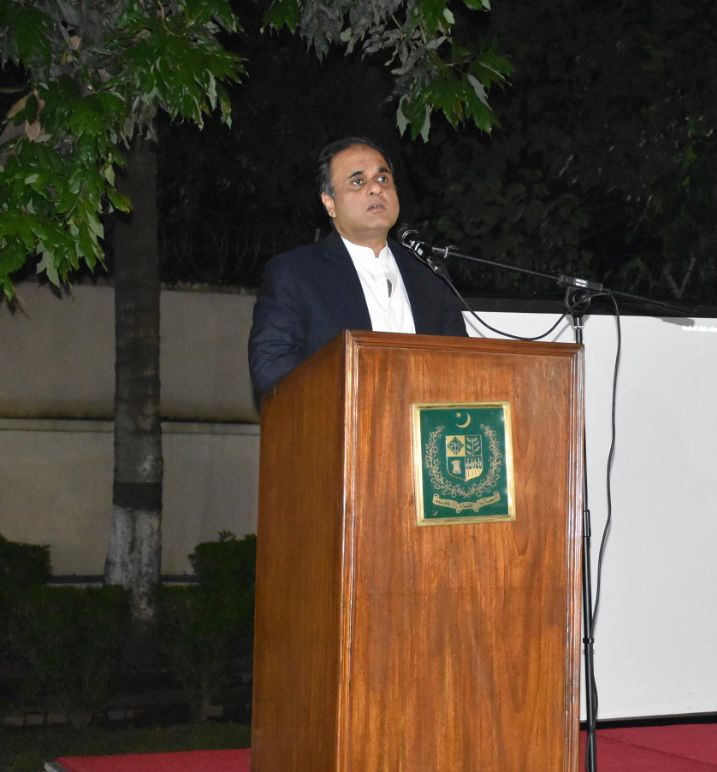Pakistan’s high commission in Bangladesh observes “Black Day” in solidarity with Kashmiris
DHAKA, Oct. 28 (NsNewsWire) — The Pakistan High Commission in Dhaka on Thursday observed “Black Day” to express solidarity with the people of Indian-administered Jammu and Kashmir on the 75th anniversary of the dispute over the region.
High Commissioner of Pakistan to Bangladesh Imran Ahmed Siddiqui, Qamar Abbas Khokar, deputy head of mission, Omair Javed Butt, counsellor (consular affairs), and Fasih Ullah, press counsellor, of the Pakistani high commission in Dhaka, among others, were present at an event here commemorating the 75th anniversary day on Thursday.
Members of Pakistani community, academics, and local journalists also attended the event.
On the occasion, messages from Pakistan’s President Arif Alvi, Prime Minister Shehbaz Sharif, and Foreign Minister Bilawal Bhutto Zardari were also read at the event.
In their messages, President of Pakistan Arif Alvi and Prime Minister of Pakistan Muhammad Shehbaz Sharif paid tributes to brave Kashmiri people for their unwavering struggle against India’s illegal occupation and atrocities.
In his message, Foreign Minister Bilawal Bhutto Zardari expressing solidarity with the people of IIOJK, reiterated Pakistan’s abiding commitment to the Kashmir cause until the resolution of the dispute according to the UN Security Council resolutions and aspirations of the Kashmiri brothers and sisters.
Zafar Bangash, Director of the Institute of Contemporary Islamic Thought and founding member and convener of “Friends of Kashmir, Canada” while speaking on the legal and historical perspective of the Kashmir dispute stated that October 27th “will be remembered in the history as the day of infamy” when India forcibly and illegally landed its troops in the state of Jammu & Kashmir 75 years ago.
Karen Rodman, a human rights advocate, and Executive Director of “Just Peace Advocates” also spoke about the humanitarian aspects of the conflict and alerted against the demographic changes committed by the Indian government.
High Commissioner, Imran Ahmed Siddiqui in his concluding remarks reiterated the message of the leadership of Pakistan and reaffirmed Pakistan’s continued to support to the people of IIOJK in their just struggle for self-determination.
He emphasized the need for international community and organizations to play their role in stopping the ongoing atrocities and human rights violations in IIOJK and resolve the lingering Kashmir dispute as per the UN Security Council resolutions and wishes of Kashmiri people.
A video documentary highlighting the life, struggle and vision of veteran Hurriyat leader, Syed Ali Shah Geelani in the Kashmir freedom movement was also screened during the event.
The High Commission also held a Photo Exhibition depicting the Indian atrocities in IIOJK.
The participants visited the Exhibition and expressed solidarity with the oppressed people of IIOJK.
On Oct. 27, 1947, Indian troops positioned themselves in Kashmir’s largest city, Srinagar, after India and Pakistan gained their independence from British colonial rule.
The anniversary of this Indian action is observed by Pakistanis and Kashmiris as “Black Day,” while India commemorates it as “Accession Day.”
Since then, the picturesque valley has been a bone of contention between the two nuclear archrivals that have fought two full-fledged wars – in 1948 and 1965 – and a three-week Kargil skirmish on Kashmir.
Kashmir is held by India and Pakistan in parts and claimed by both in full. A small sliver of Kashmir is also reportedly held by China. Enditem
